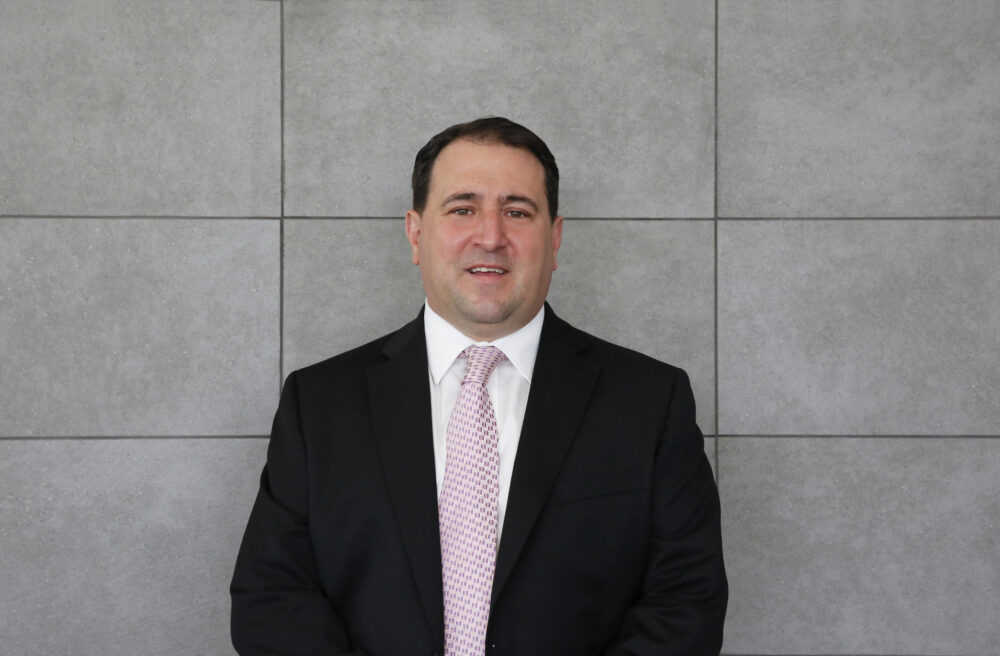It is with great pride that Boudreau speaks of his 26 years in education, specifically his work as a teacher. Colin Boudreau is the Superintendent of American International School Riyadh.
Boudreau has taught at elementary school, middle school and high school levels in international schools and public schools throughout Canada.
Throughout his career, Boudreau has been described as a positive change agent in schools where he has led in areas of innovation, 21st century teaching and learning, character development, teacher recruitment and retention, construction projects, strategic planning and leadership development.
For the past three years, he has also taught a course for the Academy of International School Heads named ‘Aspiring Heads’, a three day seminar designed for emerging leaders in international education looking to become school heads.
It is clear to Boudreau that school leadership is all about relationships – relationships with students, with teachers, with leadership, with parents and with the greater community. His focus in the coming years will be to continue to build and foster all of these relationships.
Boudreau spoke to Education Middle East about experiences from his 26-year career in education, the power of being together as a community and skills required by teachers to move up to leadership roles.
What inspired you to choose a career in education?
I think the necessity to serve others was always something that appealed to me, and I knew it was something I wanted to pursue. As I was going through school, many times I struggled and there were teachers there that lifted me up. I think having the opportunity to possibly have that impact on other young people was, and has proven to be so fulfilling.
You are an ideal example of a teacher who has risen to the ranks of a school leader – how was the journey? Can you share some tips for our emerging teachers?
I believe that no matter what your job title, you are always a teacher. Although I have taken different leadership positions in the schools where I have worked in my career, you always must know and understand what the pressing things are that teachers deal with on a daily basis. You cannot get too disconnected from the classroom no matter how important you think you are or what your job title may be. Your mandate, as an educator, is to serve students. Great leaders know and understand the student experience and work hard to improve it. When you enter leadership, be proud that your background is teaching – that is exactly what it should be.
You have spent 26 glorious years in education. Tell us about some instances that really stand out in your memory.
I think the things that stand out in my memory really focus on student success stories. These success stories happen in different areas of a student’s educational experience. They may happen in the classroom, or on the sports field or in an activity or on a community service trip. Those experiences, many a time have been difficult, which really shape the character of a child are things that I will never forget because I know these lessons will stay with the children forever.
I have been blessed enough to have many of these experiences. What is really rewarding is when you get notes and letters from students years and years later that tell you what a difference you made in their life. This is what makes this profession so special, sometimes, the influence can last generations.
You’ve served schools in Spain, Canada, Paris, Mexico, Qatar and Saudi Arabia. Do you see any common values among the schools in America, Europe and the Middle East?
Of course, all great schools really want to instill the same values, it’s just that some schools are more equipped to do it better than others. Schools want their children to face the world with the character attributes and academic skills to have them not only succeed but lead their communities in positive and effective ways. They want to produce informed citizens that are thoughtful, caring and compassionate and will work collaboratively and critically to solve the world’s problems. In my experience, these are the similarities that exist in schools around the world. It is what I want for my own children when I send them to school. I want and value a school that values their academic prowess but cares about what kind of people they become as well. More than producing the next Einstein, I want my child to graduate from a school ready to become a decent and productive being.
We are told that you do an annual review of your mission and strategies at American International School – Riyadh (AIS-R). Why do you do it?
We do not review our mission and strategies each year (that happens every five years) but what we do each year is to work to better understand and consolidate our collective understanding of our school’s mission. Each sentence and each word. A school’s mission is essential to know and understand because it is, in fact, our collective work and what we are all striving for. It is our destination and in order to know what we are doing each year and why we are doing it, we need to understand the destination. This has been something very special at AIS-R and we will continue to work together at accomplishing each word of our mission.
Pandemic has accelerated the use of technology in schools. How has the experience been at AIS-R?
AIS-R has had to adapt just like every other school in the world and it has, successfully. Although it has accelerated the use of technology and there are a lot of good things that have been a result of these challenging circumstances, accelerating technology, in of itself, is not the goal of a school. Technology is a tool to be able to do other things.
The COVID situation has moved us unexpectedly forward but has also led us to confirm what is important about school. It has led us to be more creative but has reminded us of the power of being together as a community. Children need to play with other children and need positive and consistent interactions with adults. Adults need the same. It fills our soul and COVID has reminded us of that.
School leadership today demands knowledge, skills and attitudes much different than those required earlier. How can teachers prepare themselves to keep up to it?
Yes, it is true that the knowledge, skills and attitudes you need to be a school leader do change over time. You must stay current and adapt to these changes. That being said, there is one thing that does not change. Leadership, in my view, is about relationships. Relationships with your colleagues, relationships with parents and relationships with children. Building these meaningful relationships and understanding that although a leader, you are part of a larger team that supports children, is what I have always valued in the leaders I have worked with and is what I hope to show to my community. There is a clear sense of confidence and capability needed to be a great leader but with that, a humbleness that has every member of your team see you as a teammate, working in a different way, towards the same mission is key. Keep up with the changes, study hard, stay current but do not overlook the soft skills needed for people to follow because you are not leading if nobody is following.








